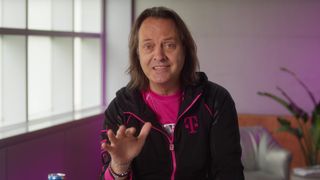T-Mobile signs $3.5bn 5G network deal with Ericsson
T-Mobile secures second major 5G equipment deal.

T-Mobile has reached a $3.5 billion deal with Ericsson for 5G network equipment, allowing the self-styled “un-carrier” to press ahead with its plans for a nationwide rollout in the US.
The deal includes core network hardware and software, including products from the recently updated Ericsson Radio System (ERS) range.
In addition to laying the foundation for 5G, the new technologies will boost T-Mobile’s 4G network, while existing the operator’s existing Ericsson radio equipment will be upgraded remotely via a software update to support 5G New Radio.
T-Mobile 5G
ERS now supports spectrum sharing which allows operators to power 4G and 5G services within the same spectrum band simultaneously. This can expediate the provision of nationwide 5G coverage as operators don’t need to dedicate existing LTE assets to 5G – a move which would negatively impact 4G performance.
The arrangement builds on a previous $3.5 billion 5G network gear deal that T-Mobile signed with Nokia in July. Ericsson and Nokia will compete with Huawei, Samsung and others for the right to provide operators around the world with next-generation network equipment.
“While the other guys just make promises, we’re putting our money where our mouth is,” declared T-Mobile CTO Neville Ray. “With this new Ericsson agreement we’re laying the groundwork for 5G – and with Sprint we can supercharge the 5G revolution.”
“We have recently decided to increase our investments in the US to be closer to our leading customers and better support them with their accelerated 5G deployments; thereby bringing 5G to life for consumers and enterprises across the country,” added Niklas Heuveldop, Ericsson’s North American chief.
Are you a pro? Subscribe to our newsletter
Sign up to the TechRadar Pro newsletter to get all the top news, opinion, features and guidance your business needs to succeed!
All four major US operators have advanced 5G roadmaps with the first services due to go live later this year. Initially these will only support Fixed Wireless Access (FWA) broadband service using millimetre Wave (mmWave) spectrum, with the first 5G smartphones set to arrive in 2019.
T-Mobile is hoping to merge with rival Sprint, arguing the deal will accelerate development of 5G in the US. It claims the combination of its long-range 600MHz spectrum with 28GHz mmWave bandwidth will allow for the creation of a truly national network.
It argues its rivals only have mmWave spectrum, which delivers high capacity but has comparatively low range, making it only suitable for urban areas and Fixed Wireless Access (FWA) broadband.
However, critics are concerned the reduction of four operators to three will reduce competition and harm consumers.
- Here are the best mobile phone deals for September 2018
Steve McCaskill is TechRadar Pro's resident mobile industry expert, covering all aspects of the UK and global news, from operators to service providers and everything in between. He is a former editor of Silicon UK and journalist with over a decade's experience in the technology industry, writing about technology, in particular, telecoms, mobile and sports tech, sports, video games and media.
Most Popular


